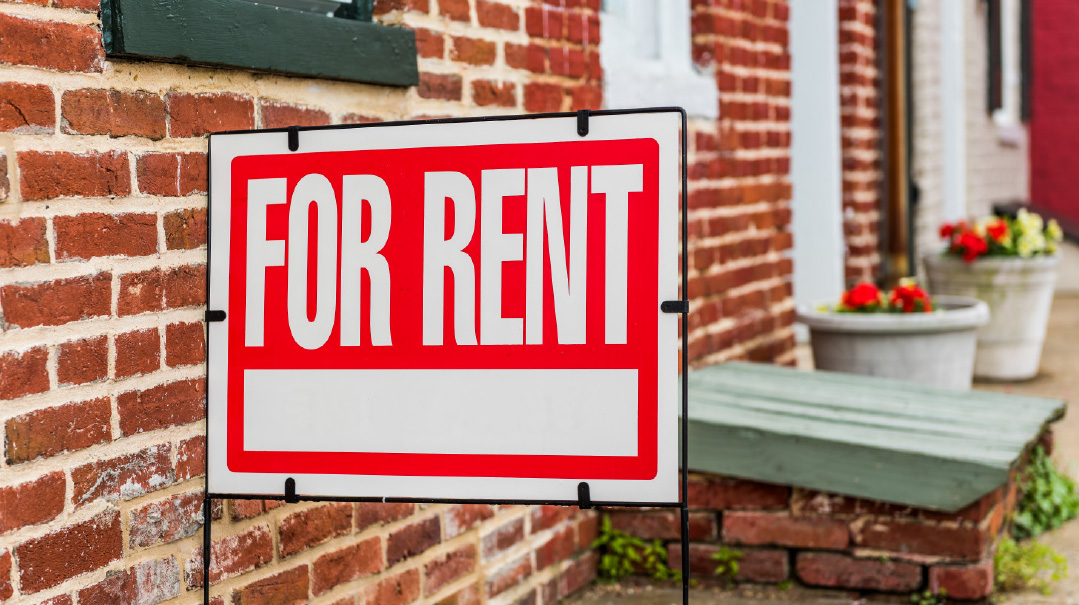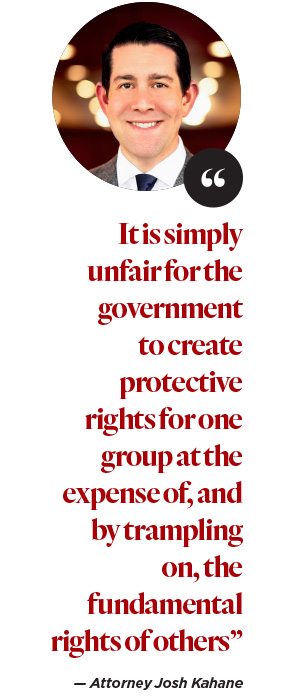Beating the Eviction Freeze

“This was the most important brief I ever filed in my career, and I was given 24 hours to draft and file it”

The article that appeared in this space two weeks ago, “Landlords Say, What About Us?” (Issue 856), describing how government-ordered eviction freezes included no support for beleaguered landlords, elicited a pretty strong reaction from one corner.
Josh Kahane, a frum attorney in Memphis, Tennessee, who is as dedicated to the community kollel he established with his wife as he is to his legal practice, is the only person in the country who can say that he beat the eviction freeze put in place by — of all federal agencies — the Centers for Disease Control (CDC).
“One thing that was glaringly omitted from your article,” wrote Kahane, “was the victorious lawsuit that I filed on behalf of more than 5,000 landlords against the US government, wherein I defeated the CDC’s eviction moratorium and had it struck down as unlawful and unenforceable.”
The case so far only effects landlords in the Sixth Circuit Court of Appeals’ jurisdiction: the states of Kentucky, Michigan, Ohio, and Tennessee. But it is now on its way to the US Supreme Court.
Kahane is a litigation attorney at Memphis’s Glankler Brown law firm, but a significant portion of his clients live in New York and New Jersey and own rental property in the southeastern United States. They have been hit hard by the CDC’s near-total eviction freeze, which did not take into account at all the financial impacts on landlords. Most tenants have been paying their rent, but a growing number have taken unfair advantage of the government’s one-sided order, leaving landlords in the lurch.
“The landlords,” Kahane says, “are saying to tenants, ‘If you don’t have the money to pay the rent owed, we get that. All we want is the legal right to get our property back so we can rent it out to someone else who can pay.’ It is simply unfair for the government to create protective rights for one group at the expense of, and by trampling on, the fundamental rights of others.”
Kahane initially decided to wait out the moratorium when it passed as part of the CARES Act on March 27, 2020, since it was limited in scope — only tenants whose landlords received federally backed loans or funding were included — and was due to expire in August. But when the CARES Act ended, the CDC immediately issued its own moratorium covering every single landlord across the county. That’s when Kahane went ahead with the lawsuit.
Kahane filed the complaint on Erev Yom Kippur — as his wife called him frantically urging him to finish. Fearing the government would seek to move the case to a more favorable venue, like Washington, D.C., Kahane limited the plaintiffs to those owning real property in the Western District of Tennessee. The court struck down the moratorium as unlawful and unenforceable on March 10.
The CDC had argued that there was a public health interest in the eviction freeze, saying it would help “ stop the spread of a public disease,” and that it fell under their powers to take “any other measures that they deem appropriate.” Nonsense, the judge ruled; he granted a stay on the freeze, but that only applied to tenants in his district.
The government immediately appealed to the Sixth Circuit Court. Again, providence schemed to interfere with Kahane’s Yamim Tovim, this time days before Pesach.
“This was the most important brief I ever filed in my career, and I was given 24 hours to draft and file it,” Kahane says.
He managed to file it, but included an addendum that he would not be available for oral argument in the Ohio-based court during Yom Tov. He turned on his phone after Yom Tov to find 172 emails from news organization around the country.
“Up until eight months ago,” he jokes, “I’ve been a lawyer only. But since I started with this case, I’ve become a media person too.”
The court had denied the government’s emergency stay request in unusually strong terms, all without oral argument.
“I spoke with friends and colleagues, all of whom told me that they had never seen a stay order like this one,” says Kahane, in practice for 17 years. “The order denied the government’s request for emergency stay, but also analyzed in detail the underlying merits of the government’s case, and ruled as a matter of law that the underlying appeal was without merit.”
The government then requested certiorari from the United States Supreme Court to overturn the ruling. However, when the case was assigned to Justice Brett Kavanaugh, a conservative appointed by President Donald Trump, the government yanked its request.
In the meantime, many municipalities under the Sixth Circuit’s jurisdiction began enforcing evictions based on the ruling. Tenants facing eviction fall into four classes, each comprising about a quarter of the total. The most egregious have the ability to pay but choose not to. Others are turning in their keys or are going through a court process. Some are working with their landlords and applying for government rental assistance programs.
Kahane hopes the final nail in the moratorium’s coffin will be hammered in by the Supreme Court. But he worries that the government may back off its appeal, effectively allowing the moratorium to die only in the Sixth Circuit but continue in the rest of the country. That would force Kahane to fight the government district by district.
Another fear lies in the fact that so far, the Sixth Circuit has only dealt with the motion to stay the CDC’s moratorium, but that will not forestall other government agencies from going down the same road.
“If the court strikes down the CDC’s eviction moratorium as an excessive exercise of agency authority, it doesn’t stop Housing and Urban Development or some other federal agency from issuing their own moratorium the next week,” he says. “We need an order from the US Supreme Court finding that any moratorium of this type issued by a government agency under the guise of public health, and without just compensation to landowners, is an infringement on fundamental rights and inherently unlawful and unconstitutional.”
Kahane admits to mixed feelings as an Orthodox Jew suing the government.
“On the one hand, I’m very proud of the service I was able to provide my clients, and the justice that I believe I was able to deliver,” he said. “At the same time, I have tremendous hakaras hatov to the government of the United States for the freedoms we have. But in this particular case, the government’s effort are giving justice to one group at the expense of another. So it’s somewhat bittersweet.”
(Originally featured in Mishpacha, Issue 858)
Oops! We could not locate your form.













